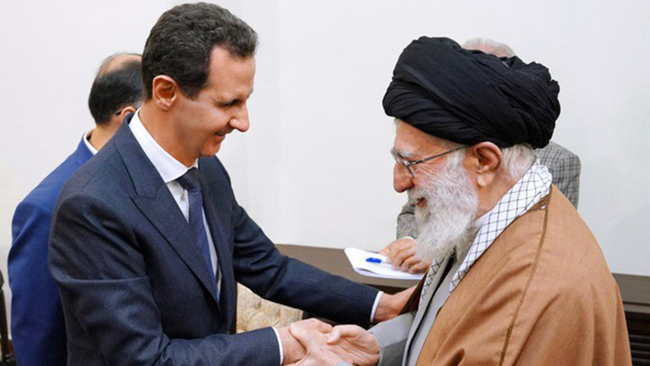Iran’s automaker SAIPA restarts manufacturing in Syria, launching a new model of Chinese-derived sedan Brilliance H330.
"The company will launch the car in the markets at the beginning of next week for the agents in Damascus, Aleppo, Lattakia, Homs and Hama, offering big facilities to the customers with suitable installments,” SIAPA authorized dealer in Syria Fahed Darwish, ARMADA Co. director, told Syrian Arab News Agency (SANA).
CEO of SAIPA Syria, Behnam Saberi, says 1,000 units of the H330 will be produced this year.
The company, in joint venture with SIVECO International, situated in the industrial city of Hassia, near the central city of Homs, has resumed its production following years of inactivity due to the war in Syria. SAIPA production unit opened there in 2007.
“Given the interest of Syrians especially the middle class for SAIPA products, we have plans to manufacture new models our cars in near future,” Saberi added. Pride hatchback, one of SAIPA’s earlier models, are mostly used as taxis in Syria.
SAIPA’s Syria director, Mohammad Alavian, earlier told Tasnim news agency “The war in Syria hampered SAIPA’s operations there between 2012 and 2015. By the end of 2015 production plans were back on track and production increased gradually. In 2017, SAIPA produced and sold over 1,000 vehicles in Syria,” according to the Financial Tribune.
The other big Iranian carmaker Iran Khodro was also present in the Arab country before the war broke out in 2011. Samand, one of its previous models, are used by middle class Syrians.
Iran eyes resuming its economic activities in Syria as the eight-year war is dwindling down. Iranian public and private companies are delving into the Syria market before regional rivals such as Turkish or Chinese firms take their share. To gauge the Arab country's further potentials, a large Iranian private sector businessmen, headed by Gholam Hossein Shafei, Preisdent of Iran Chamber of Commerce, Industries, Mines and Agriculture (ICCIMA) embarked on a two-day trip in January to take part in a joint Syria-Iran business forum in Damascus.
Iranian Vice President Eshaq Jahangiri, who headed the public and governmental sector delegation, oversaw the signing of several Memoranda of Understanding (MoU) and trade deals that pave the way for the bigger presence of the Iranian businesses in the multi-billion-dollar Syrian market. Iran's economic ties with Syria aren't on par with thier political relations. To cement warm political relationships that Damascus enjoys with Tehran, Syrian President Bashar al Assad visited Iran and held talks with Iranian Leader Ayatollah Ali Khamenei as well as President Hassan Rouhani in a very short and hugely secret visit.

Syrian President Bashar al Assad shakes hands with Iranian Leader Ayatollah Ali Khameni in Tehran late February (Photo: khamenei.ir)
But, there are many untapped capacities in the country as Damascus eyes rapid reconstruction of its demolished infrastructure during the eight years of a devastating conflict. One of Syria's most urgent needs is building new homes, shops, hospitals that have been razed to the ground of heavily destroyed. As Syrian authorities have repeatedly said they have given the priority to Iranian companies, the time is ripe for firms to expand their economic activities beyond the Iranian borders.
One of the MoUs was about Iranian firms constructing 30,000 residential units in Syria, Amir Amini, Deputy Iranian Roads and Urban Development Minister was cited by the Iranian media as saying.
Also, Iraj Rahbar, a housing assosication director in the Iranian capital, Tehran, says another document asked Iran to build 200,000 residiential complexes as well as an industrial city in Syria.
Iranian plastic makers will have their niche of the market as their products will be heavily used by construction contractors.